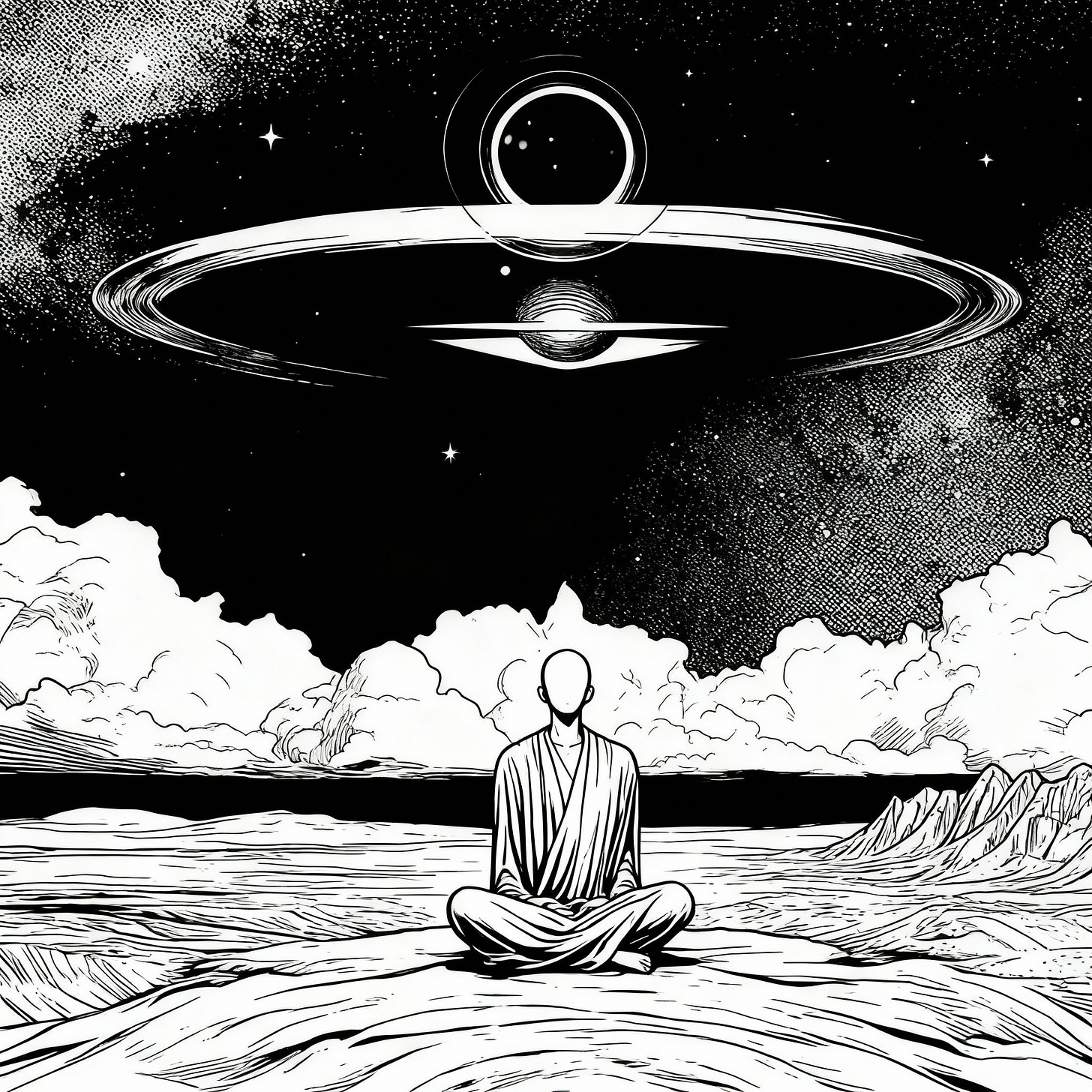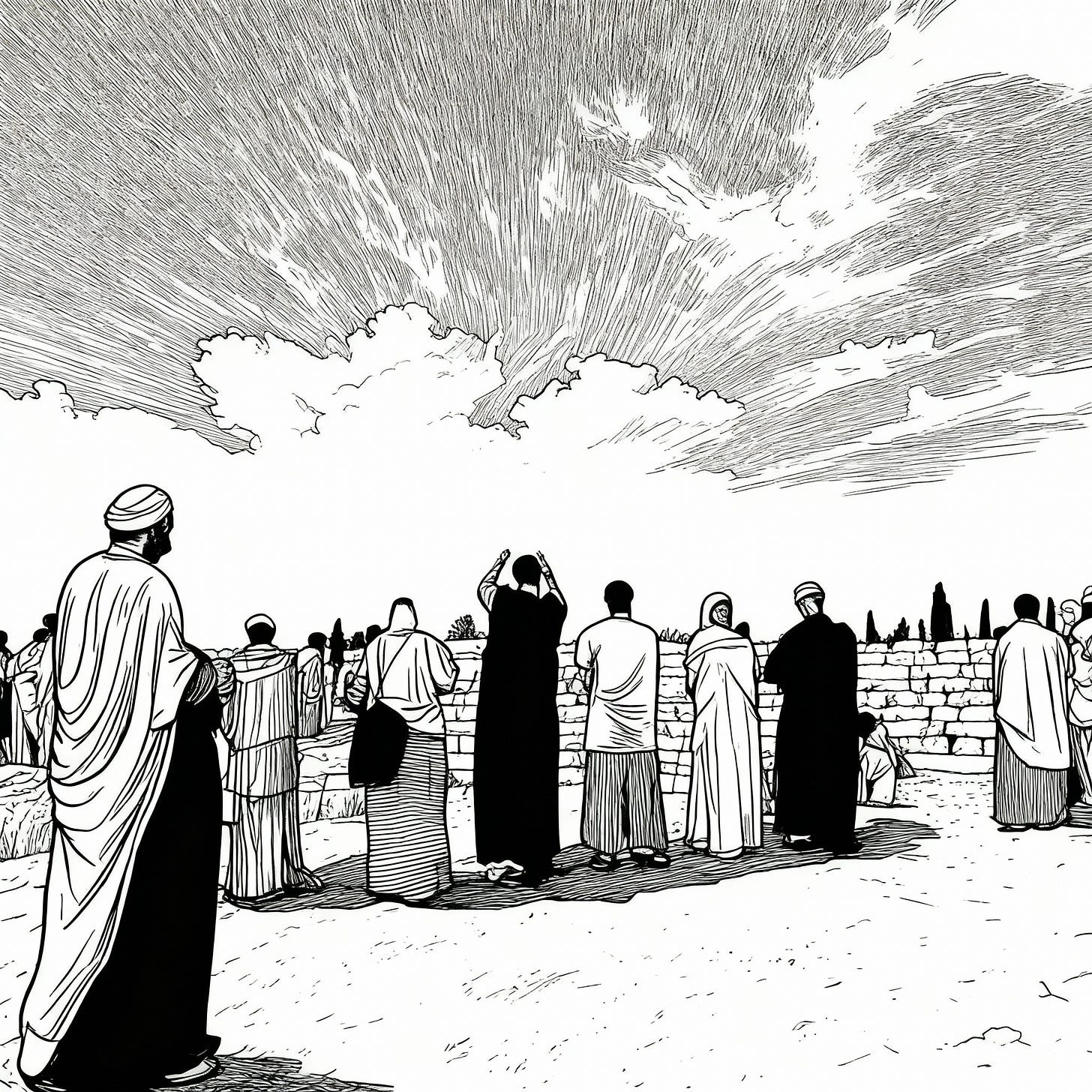Still
Be it. (Some thoughts about tradition mashed up with a great, famous line.)
This post is saying two things when maybe it should be two posts each saying one thing. But here goes:
First, sometimes, I really do think that marinated religious traditions may be a sort of basic operating system for civilizations, and that both the state of the these operating systems today, and modern cultures’ relationship to them, explain a lot of what’s happening in the world. As I’ve said before, I think that time-honored religious traditions are perhaps more important than we realize — even though religious institutions can be highly problematic, and are probably in need of some fundamental reforms if they’re going to thrive in the 21st century and beyond.
As you probably know, I’m diving deep into the Judeo-Christian tradition — because though I haven’t done all of my spiritual work there, and I still don’t, I’ve learned over time that all my exploration is fundamentally anchored in the Gospel, and in Jesus. And, yeah, if you’re going to study the Bible, for instance — you’re going to study ideas that have resonated again and again through certain expressions of civilization — and have especially defined the cultures of the Americas and Europe, where I’ve spent the majority of my life. And if you’re going study the Bible well, in my opinion, you’re obliged to study a surprisingly rich range of things. You’re not only going to study ethics, philosophy, and theology; you’re going to study history, archaeology, and anthropology. You’re going to study ancient poetry and novellas. Languages. Cultures. And of course you’re also going to study — dare I say, encounter — something genuinely transcendent veining all the other perhaps more terrestrial material.
By the time you’re finished, you will have studied a lot of the things that need to be considered for the sake of a healthy civilization. And again, if you study the unfolding of the tradition over time — study church history, for instance, Christian history — you will study civilization even further. You’ll study civilization linked — for good and for ill — to particular ideas about individual and communal development, and you will study civilization linked to the idea that the universe is, at least, presided over by consciousness — an idea which is adjacent, at least, to an even more true idea I feel, that the ground of all existence is a consciousness, which, among other things, engages us in ways that resemble those of a loving parent.
I’m not sure you can get all the way to the top of the mountain within the bounds of Christian orthodoxy; in fact, frankly, I don’t at all see how you can. But I think it’s worth considering that the marinated traditions may actually provide both some of the key essentials of individual formation and some of the weight-bearing beams of society itself. Perhaps it’s worth making a distinction between religious tradition and religious institutions — and then it’s worth admiring how vast the scope of a marinated tradition can be.
Take, for example, the book of the Psalms. The psalms are a collection of songs to God. We’re not sure who wrote them. Probably many people wrote them. Tradition holds that some were written by King David of the Israelites; some were written by his son, King Solomon; some by Moses, they say; some, supposedly, by the sons of an opponent of Moses, Korah. Some, it’s said, were written by Abraham, the patriarch; some, perhaps, by a mysterious priest named Melchizedek. Some of the psalms are even more mysteriously attributed to the first man, Adam. The Wikipedia article on the Book of Psalms points out that some of the psalms bear similarity to earlier Babylonian texts, including the Enuma Elish (which is also similar to the book of Genesis in some ways — though its deity is notably harsher and more indifferent than the Judeo-Christian one). The psalms are a defining pillar of Judaism and Christianity, but in some ways they’re also a sort of pastiche of ancient religion, curated by priestly scholars who are going in a given direction. They talk to God. They talk about God. They talk about nations. They talk about the very big and the very small. For some, the psalms may feel inaccessible, but if you spend enough time with them, I think you can end up surprised by how much you’ve thought about. You will have passed through layers of culture, history, and mystery — some of which feels like an encounter with something alien and hard to integrate — but which also turns out to have exercised your thinking in a number of interesting, relevant directions in the process.
And then sometimes, too, embedded in all those layers you’ll find something that is more cleanly timeless and essential — and given its context, I think it’s all the more remarkable for it. This morning, as I was meditating, the famous line from Psalm 46 emerged in my mind:
“Be still, and know that I am God.”
And it struck me as really remarkable that an idea like this comes from such a complex work as the Bible. For everything else that’s going on in there, I’m really blown away by how clear this sentence is. It’s truly a course in mysticism unto itself.
Be still . . .
What does it mean to be still? It means to be motionless. To be quiet. To be limpid. To be that eye within that it always like the eye of a child. The eye which, when we inhabit it, reveals all the layers of mask that we step into, accrete, wear like suits.
What are those suits made of? Whatever it is, we wear them.
Be still, and know that I am God.
What does it mean to know that God is God? Don’t you have to be still to even begin to answer that question? I think so.
To see a mountain, you have to focus on it. To really see it, you have to consider it, perhaps for a long time. How much more time and focus to know who and what God is? The Bible can provide frameworks that can help us to consider who and what God is — so can the Gita, I feel, so can a number of texts — but they’re not going to tell us who or what God is. To know that — in the modern world, to even begin to have a hope of knowing — you definitely have to be still.
Be still, and know that I am God.
For me, one of the fundamental themes of this passage is a message of safety. Being still, and trying to know that God is God quickly begins to articulate the boundaries of what is and is not in my control — and who is ultimately presiding, if not exactly controlling.
Perhaps not exactly not controlling, either?
Know that I am God.
An ultimate Mind is seeing all of this. An ultimate Heart is feeling all of this. An ultimate being is giving of itself for all of this to occur.
Be still, and know that I am God.
In a way, everything else in a religious tradition emanates from core ideas like these. They’re like those peak scenes in a beloved TV show that also has some oddly put-together episodes and seasons. I think you can’t fully separate the one from the other, because the rich clear notes inevitably flow into everything else. To ignore the “everything else” is not to transcend it; it’s just to remain naïve about it.
So you can see this exquisite sentence emerging from within an ancient tradition — often referred to as a “God-soaked” tradition — in which every aspect of life is constructed as a divine offering, as an act of sacred obedience.
Be still, and know that I am God.
Why did I smash these two posts together? Is it just sloppiness on my part? Does the first part make the second part a richer read? It’s good to think about what the Bible is, I think, before you think of what comes out of it. It’s so important to think about the layers of this stuff — and what happens when you engage all that texture with the authenticity of yourself — without the encounter being immediately overwritten by cultural pressures. Oddly, that’s the operating system at work. Not through low-key brainwashing of a badly-managed religious organization, but through widespread, organic engagement.
Just you and the stuff. And groups and the stuff. Maybe those thoughts I wrote about the Bible before meditating on 46:10 helps bring some of that texture to bear.
Psalms 46:10, ancient text, of uncertain origin:
Be still, and know that I am God.
For thousands of years, people have striven for organization and freedom, for prosperity and justice — one often frictional with the other. And for thousands of years, sages have offered clean wisdom like this. Thousands of years later, it’s still important.
Be still, and know that I am God.
How still? Am I being still enough? Can I be semi-still and maybe semi-know God? Can I —
Be still.
Oh, yeah! There’s an emergent order, and society emerges from the aggregate of everyone turning to . . .
Be still, and know that I am God.
What about—
Be still . . .
“ “
Be still . . .
“ “
Be still . . .
Does this sound creepy? I’m trying to make the point that the words are so insistent. A mountain makes a sound, in a way, and those unspoken words make a similar sound.
But maybe it sounds instead like I’m being suffocated by God? Something like that slow stabbing scene at the end of Saving Private Ryan . . . ?
. . . Only with God?
No! That’s not what it is at all! Just picture the pure silence behind —
Be still . . .
“ “
Be still . . .
“ “
. . . and know that I am God.
“ “
. . .
“ “
Be still, and know that I am God.
. . .
. . .
.

